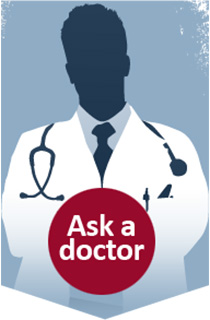Destigmatizing Self-Diagnosis of Mental Illness
One thing that has a bad reputation, even within the mental health community, is self-diagnosis but I think that self-diagnosis of mental illness should be destigmatized. I have seen posts that suggest people who self-diagnose are just attention-seekers who give a bad name to mental health and those who suffer with mental illnesses. Especially in the day and age when Googling symptoms can sometimes lead to really extravagant diagnoses, it seems perhaps better to just avoid self-diagnosis at all but destigmatizing self-diagnosis of mental illness may be a good thing.
Why Self-Diagnosis of Mental Illness Isn’t Necessarily A Bad Thing
I agree, self-diagnosis can be a tricky thing and potentially more detrimental than helpful when not approached smartly. However, I also feel like there are times when it is needed, either because the resources aren’t available otherwise or because no one seems to be able to pinpoint the issue.
When I was younger, no one understood I had excoriation (skin-picking) disorder. Although I had been to the doctor, he couldn’t give me or my family an explanation as to why I picked my skin, and, therefore, couldn’t give me a diagnosis. For years, no one could give me a name for what I was suffering with and, instead, said I needed to just stop my skin-picking behaviour.
It wasn’t until I came across the term chronic skin-picking that I had a name, and, later, I came to learn the term dermatillomania. I followed the unveiling of the new edition of the Diagnostic and Statistical Manual of Mental Disorders, and in May 2013 got the official diagnostic title of excoriation (skin-picking) disorder.
My point is, I had to find out that diagnosis myself. I’m the one who has found any and all information I know about my disorder because I actively sought it out. No doctor had been able to tell me, and even today I’d be hard pressed to find a doctor who could say, “Oh yes, I know what that is.” Because of that, I haven’t sought out an “official” diagnosis.
It’s because of my own searching and own diagnosis that I’ve been able to move forward positively with my disorder and begin healing. Without that, I would either still be in a deep struggle or not be here at all.
It’s not about attention. It’s not about trying to invalidate others who deal with mental illnesses. It’s about trying to make sense of the mess inside your head when no one else seems to be able to.
Cautions for Self-Diagnosis of Mental Illness
Avoid online self-diagnosis tests. Those multiple choice, click-here-to-see-if-you-have-this-disorder type of tests are definitely not accurate enough to give you any sort of diagnosis (our online psychological tests are for your educational use, not a diagnostic one). Thorough research will at least get you started in the right direction, but click-bait tests from random sites will not.
 Get a doctor’s diagnosis if you plan to use medication. At the very least, seek a doctor’s opinion and guidance before using any medication. A doctor is going to know what medications are right for your body and what will mix well with any other medications you might already be taking. If your situation is like mine, be prepared to bring information about your disorder to your doctor and go from there. Never do anything that could affect your health without consulting a doctor.
Get a doctor’s diagnosis if you plan to use medication. At the very least, seek a doctor’s opinion and guidance before using any medication. A doctor is going to know what medications are right for your body and what will mix well with any other medications you might already be taking. If your situation is like mine, be prepared to bring information about your disorder to your doctor and go from there. Never do anything that could affect your health without consulting a doctor.
Always go to reputable sources and be smart about your research. I feel like it goes without saying these days, but the Internet is full of misinformation, especially when it comes to anything medical. Don’t just jump on every new bandwagon because some ad said it was 100% guaranteed or fool-proof (nothing is 100%). If you’re really not sure about some information you’ve found, try to find an expert or, once again, consult a doctor if you can. Even if they don’t know about your disorder, they can help parse through bad information.
If you’re really struggling, reach out for help. This is always a big one for me because it doesn’t even have to be a doctor you’re reaching out to. There are so many helplines and chat services that can help you through a tough situation. If you trust someone in your life, reach out to them, too. You don’t have to go it alone.
You can find Laura on Twitter, Google+, Linkedin, Facebook and her blog; also see her book, Project Dermatillomania: The Stories Behind Our Scars.
APA Reference
Barton, L.
(2016, February 18). Destigmatizing Self-Diagnosis of Mental Illness, HealthyPlace. Retrieved
on 2025, December 16 from https://www.healthyplace.com/blogs/survivingmentalhealthstigma/2016/02/destigmatizing-self-diagnosis-of-mental-illnesses
Author: Laura A. Barton
Good job, Laura. Love the piece. Keep speaking for those who are afraid to speak out! Maybe not all disorders should only be self diagnosed, especially with meds involved like you said, but definitely BFRB's not being showcased for regular GP's and the like makes it more likely that we would self-diagnose. I self diagnosed myself and told my doctor what I had? She researched it and helped.
On the bright side? new doctors are getting BFRB exposure now. My new doc knew what trich was very in depth as well!
I had to diagnose myself to a point. All variables pointed to GAD and paranoia. Now taking medicine and getting CBT therapy. Good article.
Thank you, John! That's just what I mean, self-diagnosis can lead to formal diagnosis and treatment. It doesn't need to be demonized.
